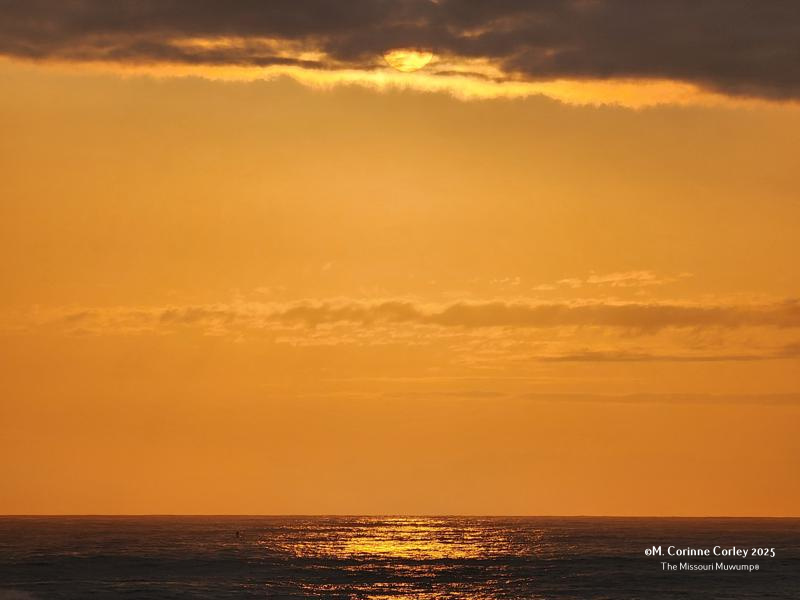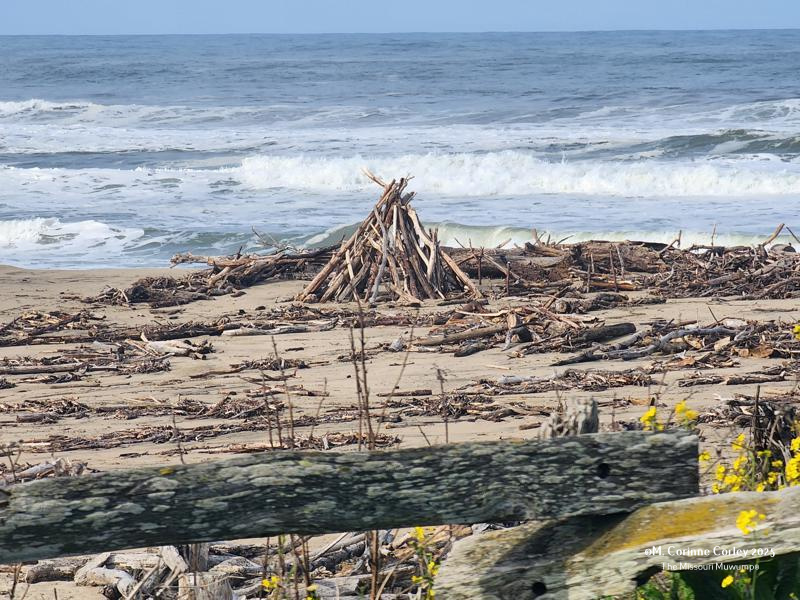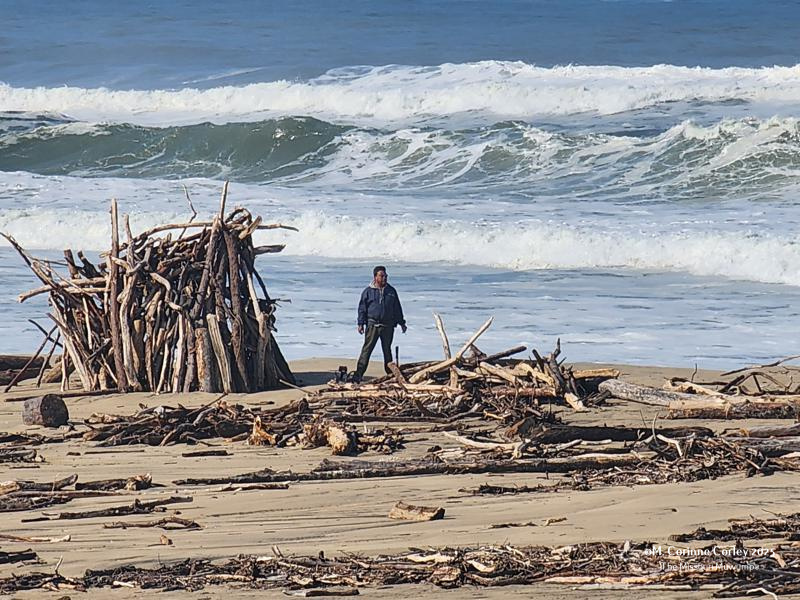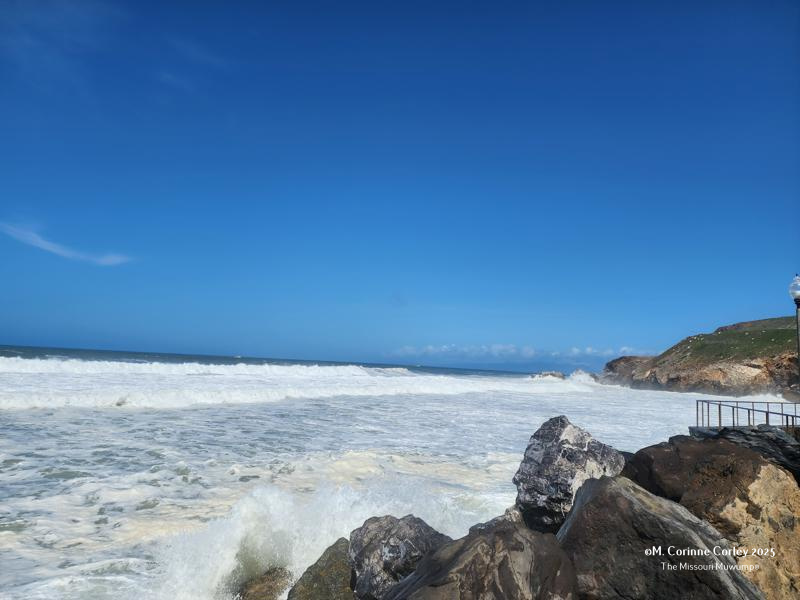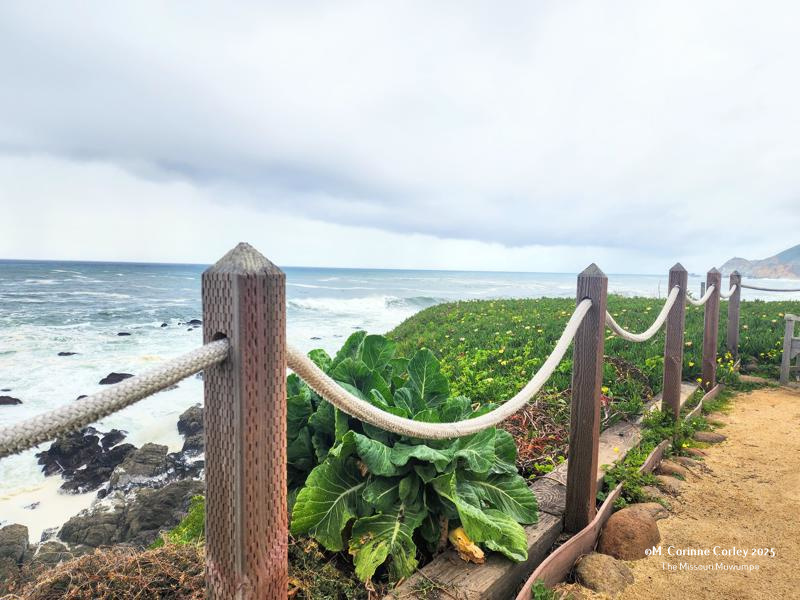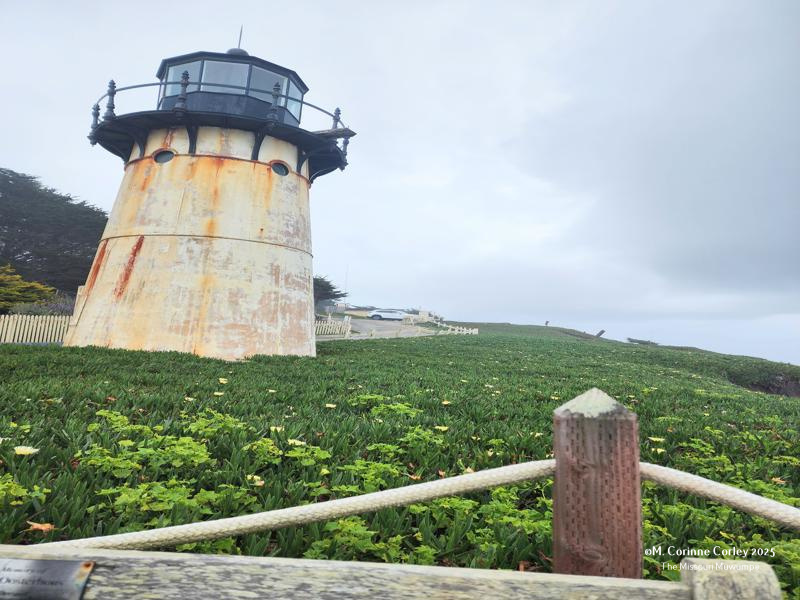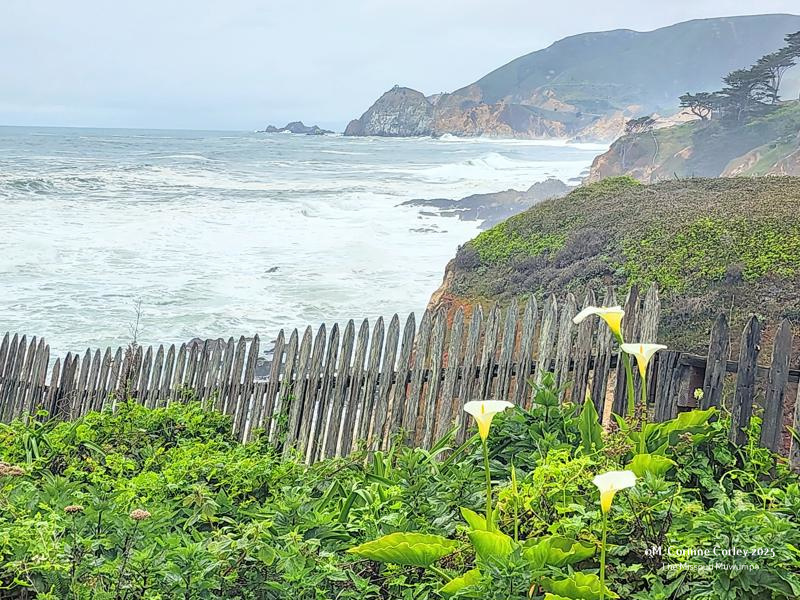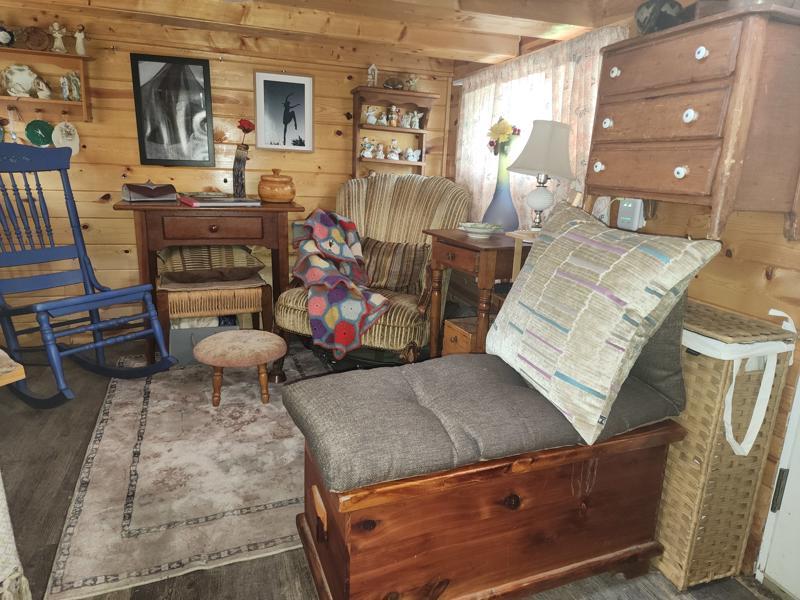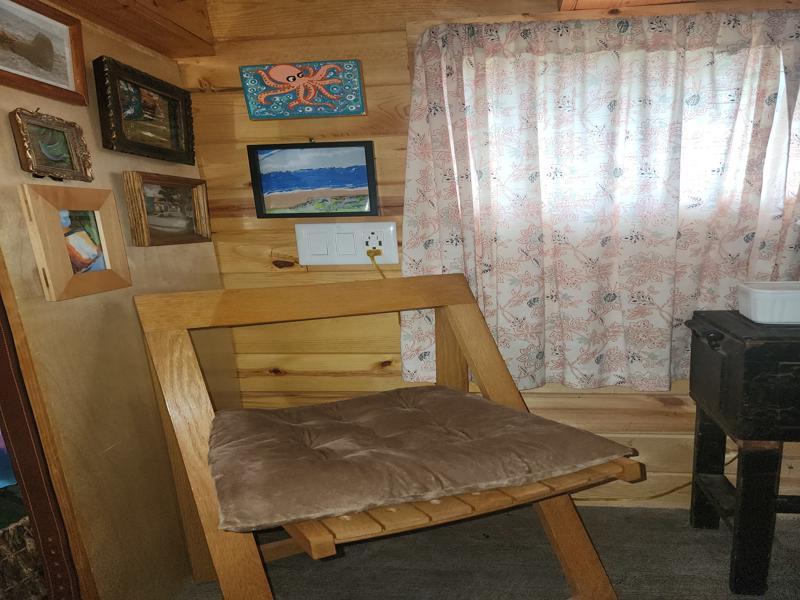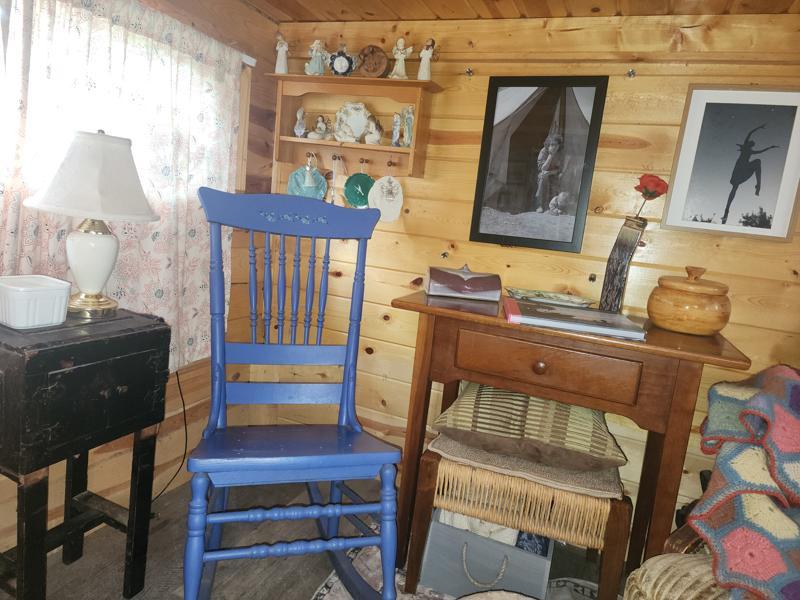The sound of the ocean has been a lullaby for me since I first came to California in 2015. I had lived on the Atlantic years before that, and had found her to be cold and unforgiving. Born and raised in St. Louis, migrating to Kansas City, and even spending a year in Jasper, Arkansas, I feel comfortable beside a river. I waded in the Meramec once, waist deep and laughing, clinging to my brother Mark’s hand and protesting all the way.
Only driving down the Coastal Highway that first time did I find solace, a strange combination of giddiness and longing. A friend had urged me to visit Pigeon Point; I’ve told this story many times. It did not disappoint me, and I repeatedly returned in those first two years of quarterly visits to Stanford. Once I moved here, in the late days of 2017, I started spending as much time as possible out this way. I had intended to live north of the Bay, but fate had other plans for me and I found myself on the banks of yet another river, with only the occasional weekend beside the sea.
On my arrival last night, I felt the old juice flow through my veins. Here was the hostel scene that had cradled me during my early days of trying to fit into the western world. I had stayed at Montara several times, and though I had never found it as homey as Pigeon Point, in truth it always seemed to be more well run. It still is; but everything evolves. The Covid years worked their ways with this place, too; and it is not as I remember.
The big building with its twin expanses of guest room flanking a welcoming central office has been split into two separate wings by erecting a make-shift wall. The employee area has been relocated to where I remember yoga classes being held. A gate stretches across the upper entrance, with a keypad on the right where a person with mobility impairments cannot hope to reach it. I’ve had to summon help both times I’ve come to the property, on arrival and late this afternoon.
I, too, have changed. I went walking on Gregorio Beach this morning, and now my back spasms in protest. Rather than sit on the point and watch the sun set as I did last night, or writing at the kitchen table, my emergency stash of Tylenol and I huddle near the window adjacent to my bed. I had the women’s common sleeping quarters to myself last night, but tonight a couple of women have checked into the hostel and stashed their belongings on bunks near mine. I don’t mind that; but in visits past, I would be out in the kitchen talking to my fellow travelers. Tonight I can but rest, and ponder the wisdom of hauling a duffel, a soft-side cooler, and my laptop bag for this short sojourn.
Today I had planned to lunch at Half-Moon Bay Brewery, where I have had many a lovely meal. I made scrambled eggs for myself at 7, before heading to the seaside for my long-awaited stroll. I planned to have a sandwich and something salty to go with it, fixed in their slightly pretentious but quite tasty style. By the time I got to La Granada and the restaurant, pain gripped me. I knew that I couldn’t even walk from the parking lot to the outdoor seating. My head fell to the steering wheel. Tears welled in my eyes.
A few yards down the road, I found myself thinking, I just need somewhere I can park right by the door. Suddenly it appeared: A funny sort of pub, Old Princeton Landing, almost a sports bar, with a wide outdoor area filled with college students. Right there, beside them, a handicapped parking spot into which I pulled without signaling to the dismay of the car behind me.
I had few hopes for the place but a cheerful young man sprang from behind the counter and held the door for me. He assured me that he would take my order table-side even though they had counter-service. I scanned the menu with trepidation, finally ordering Eggs Benedict without ham. Surely a place with concrete floors and neon beer signs would make a mess of this dish, I told myself. But the only other choices were fish tacos, burgers, or chili.
Imagine my astonishment at the lovely plate of food he brought! Perfectly poached eggs, a tangy Hollandaise, and potatoes with a crisp exterior and soft, billowy centers. I didn’t even mind the wretched coffee, as I broke the yoke and watched it seep into the English muffin that I figured I could risk, having not had any gluten for weeks. I enjoyed every bite.
Afterward, I drove to Pacifica, hoping to browse in my favorite antique store. Again, though, the spasms in my back intervened. Instead I parked alongside the railing adjacent to the pier and watched the waves through the railing. People strolled by my car, many holding fishing poles. I closed my eyes and remembered my time along the pier, a few years ago, right as lockdown lifted in early 2021. Standing at the end of the long expanse, music blasting around me, children darting in and out among their silent parents. Life on the pier. I brushed away the memory and watched the far horizon, where a cargo ship made its slow way to San Francisco.
When I got back to the hostel, I tried to open the gate without calling for help but in the end, I couldn’t make it back to the car before the even the slow metal barrier clanged shut. I drove down the hill to the handicapped parking spot, and inched into the side door of the dorm. A short nap helped, but I won’t be running races any time soon.
Now I listen to the song of the sea as the ladies sharing this room unpack and settle. The waves rise and fall on the rocks beneath the point. Clouds covered the sunset, so I didn’t miss anything after all. A chill has settled with the gathering dark. I hope that I will be able to sleep this night for every fiber of my being cries for reprieve. I return to the Delta tomorrow; to my tiny house nestled in a row of other tiny houses, on the banks of the San Joaquin, far away from my beloved Pacific. As my body strains to relax against the metal headboard, I wonder whether Thomas Wolfe might have been right after all.
Mugwumpishly tendered,
Corinne Corley
The Missouri Mugwump®
